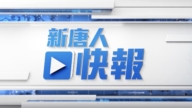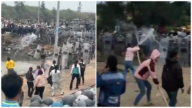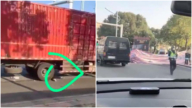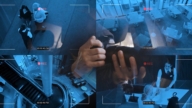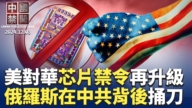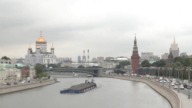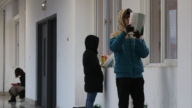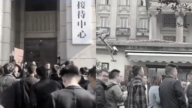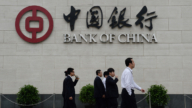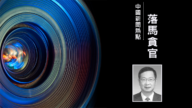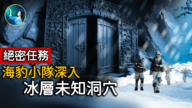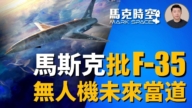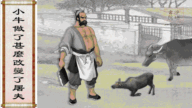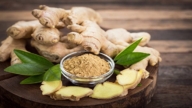【新唐人2011年12月7日訊】為期兩週的美式話劇《絕密:五角大樓文件之戰》日前在中國上演,受到中國民眾的共鳴。劇情描述40年前發生在華盛頓的一起舉足輕重的訴訟案,美國政府狀告《華盛頓郵報》,最後敗訴,劇情凸顯了公眾對政府的施政行為有知情權。
《五角大樓文件》是美國政府的絕密文件,共有兩百多萬字,詳細記錄了上個世紀60年代,華盛頓發動越南戰爭的整個研究決策過程,和尼克松白宮的秘密。
《美國之音》報導,《絕密:五角大樓文件之戰》藉由舞臺劇,重現了1971年一場具有里程碑意義的訴訟案,《紐約時報》得到了《五角大樓文件》部分內情,並刊印了前三期,隨後政府禁止繼續刊登。《華盛頓郵報》不受禁令限制,決定刊發這份文件的更多內容,美國政府就此狀告《華盛頓郵報》。最終敗訴。
劇情讓觀眾反思:政府在甚麽情況下有保護國家機密的權力?而民眾在甚麽時候有權知道他們的政府在誤導他們?
製作人洛溫博格女士表示,她花了兩年多的時間才使這齣劇在中國上演,她說:「在廣州的演出很棒。當演到格雷厄姆﹙《華盛頓郵報》董事長﹚決定刊登五角大樓文件的時候,全場爆發了掌聲。當法官裁定《華盛頓郵報》勝訴的時候,又一次響起了掌聲。」
一位不願具名的大陸人士表示,不知我們在新聞自由方面能不能盼到這一天。
而北京結石寶寶家長趙連海說,希望中共當局在民意方面也能借鑒其他國家開明之處,把知情權歸還民眾。
趙連海:「美國政府他們有時候也不希望一些信息被人知道,但是最終還是在民間包括媒體一再的追問下,政府最終還是……作了讓步,實際上這是美國政府一個非常開明之處。談到中國政府,期望他們也能夠學習這些其他國家一些政府好的作法。把一些應該歸還我們的權力,徹底歸還給我們。」
話劇主編美國南加州大學教授傑弗里‧考恩表示,很高興看到這部戲劇在中國上演,因為這些主題對中國人很重要,中國在為自身的體制基礎而掙扎。
眾所周知,在中共獨裁專制下一切「不和諧」事件都被定性為「國家機密範疇」,如官員嫖娼、群體事件、松花江污染、毒奶事件等等。
趙連海:「在我們這個土地上,實際上很多我們應該了解到的信息,政府從來是不公開的,甚至以各種理由而拒絕,簡單來說像我們結石寶寶的很多事情,目前來講我們公眾都了解非常有限,國家在這方面,政府、中國政府在這方面一直是高度的保密,不僅僅如此,更多的事情也都是這樣。」
《絕密:五角大樓文件之戰》演出後,上海和北京的觀眾參加了討論會,但類似的討論在北京大學和廣州的中山大學卻被取消。
趙連海希望更多的民眾挺身出來,積極要求自己的權益,他也希望國際社會能對中共當局施加一些必要的壓力,讓民眾的合法權益能夠得到保障。
新唐人記者李韻、蕭宇採訪報導。
American Play Arouses Chinese Echo of Right-To-Know
The American drama Top Secret: the Battle for the Pentagon Papers
was recently shown in China, inspiring Chinese citizens.
The story describes a major lawsuit which took place
40 years ago in Washington,
where the U.S. government lost its case against
the Washington Post.
The drama highlights the public’s right to know about
government administration.
U.S. government’s top-secret documents,
The Pentagon Papers contain over two million words.
The papers detail Washington’s decision making process
in the run-up to the 1960’s Vietnam War and the secrets of the Nixon cabinet.
According to Voice of America reports,
the play, Top Secret, reproduces a landmark 1971 lawsuit.
After The New York Times had obtained and published the
first three series on the Pentagon Papers,
Nixon obtained a federal court injunction forcing the paper
to cease publication.
The Washington Post pitted against the injunction by publishing
more information –leading to the U.S. government also filing a lawsuit against them.
Top Secret provokes viewers to reflect:
“In what circumstances can a government exercise its right to protect state secrets?
When do a nation’s citizens have the right to know that
their government has been misleading them?”
Executive producer, Susan Loewenberg, says she spent
over two years to bring the drama to China.
“It was wonderful the other night in Guangzhou when
Kay Graham ( president of Washington Post ) makes the decision to publish, they (viewers) broke out in applause,"
“And when the court, when the verdict came down from the judge
in favor of the Washington Post, they broke out in applause again.”
Anonymous mainland Chinese: “We don’t know
if we can see the day when free press becomes reality .”
Beijing resident Zhao Lianhai –-father to a kidney-stone baby—
expects the CCP regime to learn from democratic nations to return freedom of information to Chinese citizens.
[Zhao Lianhai, Beijing resident]: “On some occasions,
the U.S. government also kept secrets,
but in the end, under the pressure of civil society
which includes the media, it yielded.
This is in fact a very civilized action taken by
the U.S. government.
We expect the Chinese authorities to learn from other
governments』 civilized practices, to really return to us the rights that we should have.”
Professor at the University of Southern California, Playwright Geoffrey Cowan,
says he is pleased to see Top Secret being staged in China.
Because the Chinese people are placing great importance in these aspects,
China is struggling with its own institutional base.
It is well known that anything defined by
the CCP regime as causing “disharmony" becomes a “state secret “.
Officials being involved with prostitution, mass protests,
pollution of the Songhua River and the tainted milk scandals have all fallen into the state secret category.
[Zhao Lianhai, Beijing Resident]: “In our country,
lots of information that we should have known about have never been made public by the government,
who uses many excuses to avoid revealing information.
For example, so much about the kidney stone babies are
unknown to the public.
The Chinese government classifies the issue as highly confidential.
The government does the same with other issues. “
In Shanghai and Beijing, the audience attended post-play
discussions, but similar discussions held in Peking University and Zhongshan University were canceled.
Zhao Lianhai is appealing for more civilians to come forward
to actively seek their own rights and interests.
Zhao also expects the international community to put
necessary pressure on the CCP,
helping to protect the Chinese people’s legitimate rights
and interests.
NTD reporters Li Yun and Xiao Yu


